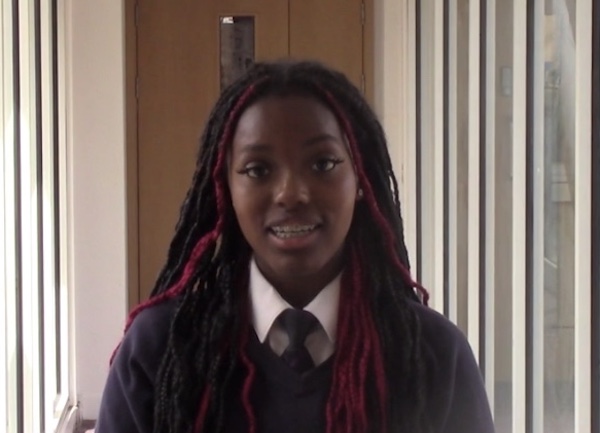Say My Name in Schools

Coventry schools
Share your name stories
Let's work together
We are keen to work with school partners to share messaging around the importance of names.
Would you like to celebrate the name stories of your community? Then we would love to hear from you.

Blue Coat School, Coventry
Hear from secondary and sixth form pupils of Blue Coat School in Coventry who shared their own name stories with Dr Jane Bryan as part of the Say My Name project.
Celebrating name stories
The University of Warwick is collecting name stories in an online showcase. To be a part of it, consider sharing your name stories with us. We have lots of digital resources for your school community, such as this posterLink opens in a new window.
Share your name story
We would love you to tell us your name story – either by writing it down, or by making a spoken-word audio or an audio-visual recording – whichever you prefer!
There is no right or wrong way to tell your name story, but we can give you some tips and guidance.
One good example is this name sharing exercise from Sheffield Hallam UniversityLink opens in a new window.
My name is...
- Tell the story of your first name and/or your family name. What do your names mean for you?
- How do your names inform your self-identity, your family identity, your ethic identity?
- How does your name make you feel? Do you like your name? Can you talk about how your name was chosen for you?
- Perhaps you chose it for yourself, or have adapted your name in some way?
Do you have a name story to share?
- Contact us using this online form and we will be in touch to explain the process.
- If you have any questions, email project lead Dr Jane Bryan at
Quick links
Teaching activities
Designed for teachers and education professionals, these activities aim to encourage community building and discussion and support induction.
Preparing for lessons on names
Listen to this student case study video on why pronouncing students’ names correctly matters.
To create a respectful learning community, it is important to establish norms for creating a safe space for students to engage in dialogues about names, identities, respect and empathy. Examples include:
- Be present
- Show respect
- Be open and listen to ideas of others
- Speak your mind
At the end of each lesson, it is recommended that teachers provide an opportunity for students to make connections with prior learning, by asking questions such as: “How does what we learned today relate to yesterday’s lesson?”
With thanks to Santa Clara County Office of Education (SCCOE) for these guidelines.
Activity: Tell us your name
Ask pupils to research:
- Their own name, either online or by talking to relatives
- Their family’s names or the names of others
- Naming practices in their own family or wider culture
Ask pupils to discuss:
- How they feel when they encounter a name that is unfamiliar. Do they have any tips that help them get the name right? How do they think the name-bearer feels when they get their name wrong?
- The first time they realised their name might get mispronounced or misspelt. They might give examples, sharing what they said or did or felt at the time or afterwards.
- How mispronunciations or misspellings make them or others feel. Do they change their behaviour as a result? Might it change how someone feels about their name or their place in a community?

